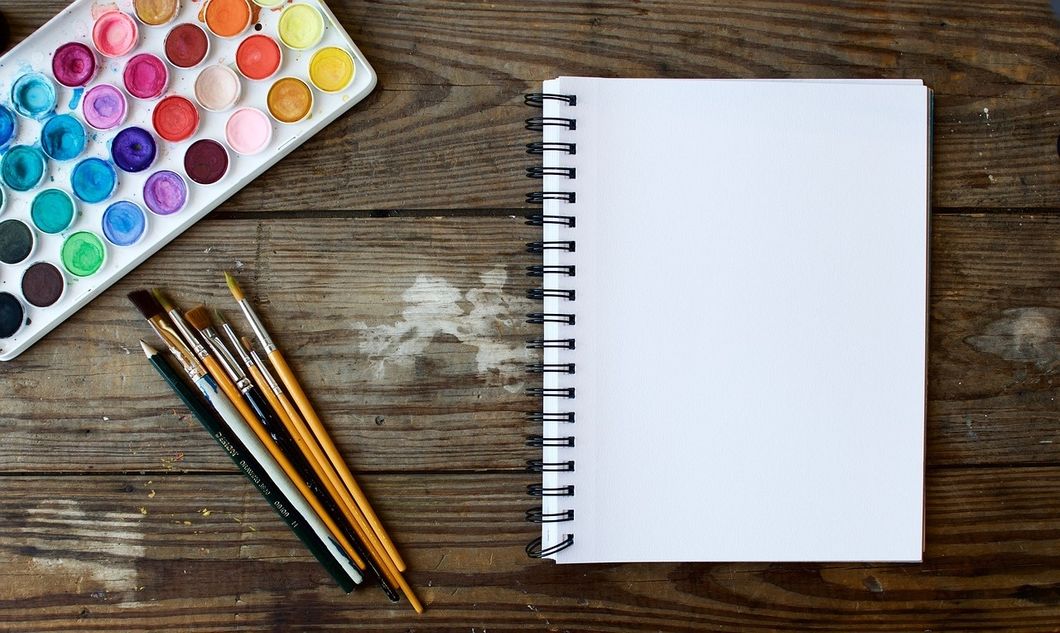In the age of "stan Twitter" and the 24-hour news cycle, we hear terms like "problematic" and "canceled." It is easy to ridicule these terms, and this entire culture. After all, most of the times you hear about someone being canceled is because they do not think Ariana Grande is God.
Celebrities are also declared canceled if it turns out they have weird, reactionary, or abnormal-for-their-profession political views, like Chris Pratt.
And then comes people like Bill Cosby, who do something so heinous and disgusting, how can anybody continue to enjoy their work?
I think it is past time to have a debate about separating the art from the artist and when that should apply, and when we should take the artist and their work and chuck both out the window.
I think this should also apply to political theory as well; George Washington is on our money, but he owned slaves, and Abraham Lincoln ended slavery, but he did not see black people as equal to white people. Can we take the views of classical liberal Enlightenment thinkers like John Locke, who's philosophy our country was mostly founded on seriously when he was a supporter of slavery?
The common response is simply separate the art from the artist. Yes, Picasso was sexist, but his paintings are undeniably beautiful. Roman Polanski is a disgusting man that was able to get away with a heinous crime, but you may have seen one of his films and whether or not you knew, you might have enjoyed it.
With some artists, it is easy to do this, since Picasso is not painting misogyny, it is easier to look the other way. However, when R. Kelly sings a love song, we now have to wonder if it is about an underage girl. When we are reading the description of a terrifying monster from the mind of H.P. Lovecraft, we have to ask ourselves, "is this giant evil being a metaphor for Italian immigrants?" When an artist makes their work an extension of themselves, how can we separate the two?
And today with social media and every famous author, musician, actor, etc. being a Google search away, it becomes impossible to feign ignorance. Everybody should know about the crimes of Kevin Spacey, but then you can point out that a lot of Kevin Spacey's work has nothing to do with his crimes.
However, if say, a rapist director makes a movie that has nothing to do with rape, celebrating the work of the director is still an endorsement of him. He will get to make another movie, and he will potentially achieve celebrity status.
We also have to reckon with the statement, "separate the art from the artist" comes from a position of privilege. It might be easy for a white man, like me, to say that when I've never been a sexual assault victim that had to watch their assaulter win a Grammy or an Oscar.
And most people that share my political views and/or read my pieces probably agree that nothing makes you want to condemn problematic artists more than white male film critics that say things like, "we need due process" and "has #MeToo become a witch-hunt?"
And stan culture on Twitter only makes the waters muddier. For example, XXXTentacion's support remained unwavering, even after the allegations of abuse have come up. Yet so many people of his fans are seriously troubled teenagers that claim his music has helped and inspired them in some way.
And there is the argument that their work is so important that it cannot be abandoned. Lovecraft created the most popular subgenre of horror, and every prominent horror author often directly or indirectly attributes their success to Lovecraft.
There should also be a debate on the intent of the author. When reading The Lord of the Rings, you may be able to see how there can be racial undertones to the Orcs and how that can be problematic, but most would probably agree Tolkien's goal was not to be racist, he just was not thinking ahead. Should he be criticized for that? In my view, yes, but he shouldn't be seen in the same light as a member of the Ku Klux Klan.
What I want my article to do is raise questions, and force people to think. I am not trying to change anybody's mind, especially since, to be honest, I haven't even made up my own mind yet. I just firmly believe we need a discussion on this issue.


















